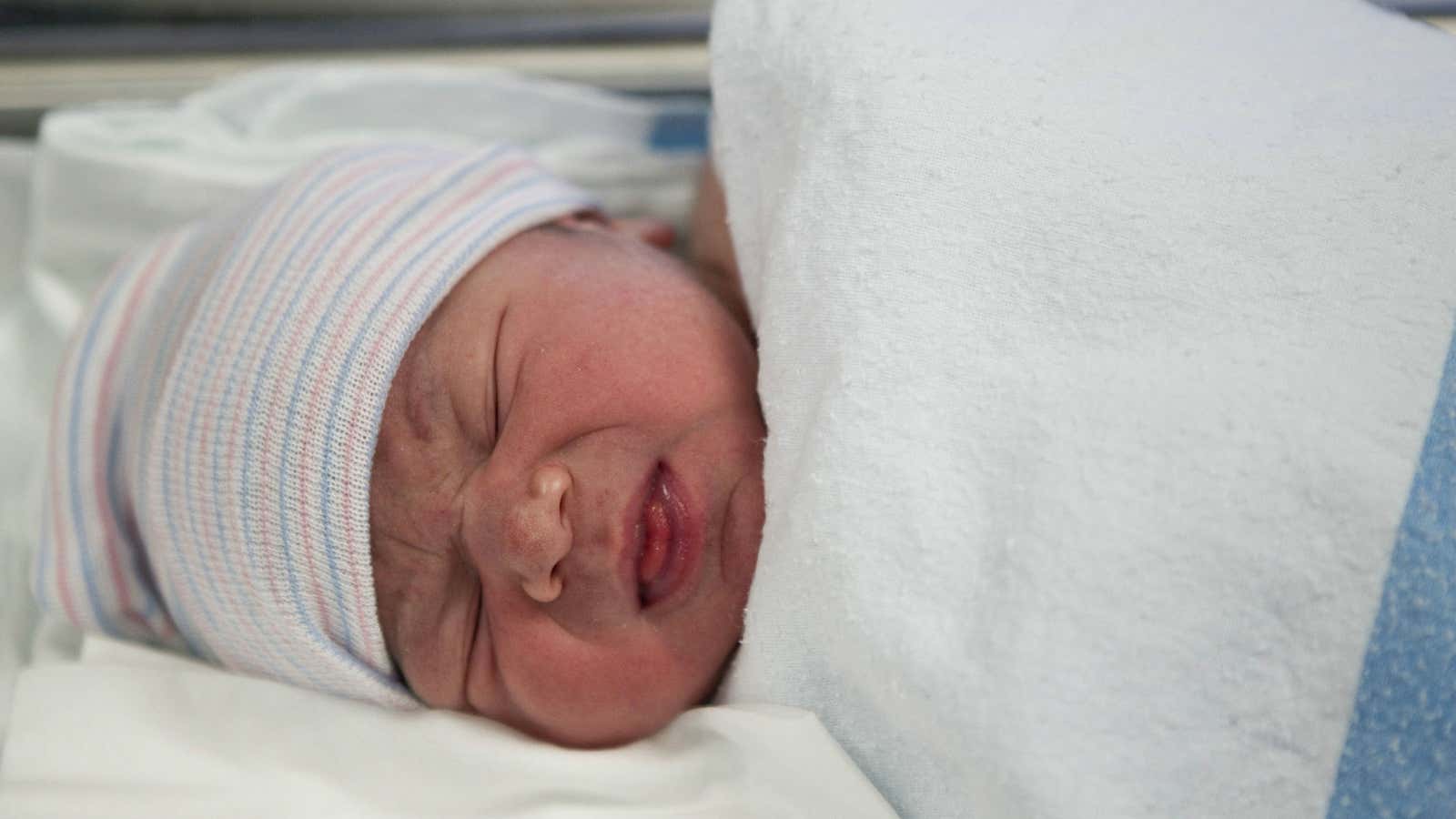Early parenting days are notoriously brutal. No one sleeps, everyone is winging it, and there’s the unnerving realization that you are in charge of another human being’s life. Forever.
Those are the halcyon days, new research shows.
Suniya Luthar, a professor of psychology at Arizona State University, looked at how mothers adapt to the protracted project of parenthood over different stages of a child’s life, from infancy to adulthood. Turns out babies aren’t so hard: teenagers, however, are brutal.
During adolescence, mothers are consistently miserable across multiple indicators of stress, anxiety, satisfaction, loneliness, fulfillment, parenting satisfaction and parenting guilt, among others, Luthar and her co-author Lucia Ciciolla found (pdf). The results of the study were published in Developmental Psychology.
“Across the board, there was not a single place that this was not true,” Luthar told Quartz. “Mothers are doing much more poorly at the middle school stage and the results are remarkably consistent.”
The two looked at 2,247 affluent mothers, 85% of whom had college degrees and nearly half of whom had graduate degrees. Luthar said she looked at mothers because research shows they are consistently the primary caregiver, and because they internalize their children’s stress more than men.
That the teenage years are bad is not shocking. In adolescence, children test limits and experiment with rule-breaking activities, including drugs, sex and alcohol. They seek independence though often lack the developmental ability to manage the freedom they get. They can be removed, affectionate and obstreperous, all in the same hour.
“An adolescent suddenly finds herself capable of breaking down the twin fortresses—verbal and physical superiority—of adult control,” writes Rachel Cusk in the New York Times.
Parents feel the increasing stakes of making decisions that have consequences. “Little people, little problems, big people, big problems,” the maxim goes.
“The issues are very consequential,” says Luthar. Making a wrong decision, she says, can feel like a catalyst for pushing a child toward taking excessive and dangerous risks.
Research on resilience has shown that the single most important protective factor for all kids “is having a close trusting, healthy relationship with your primary caregiver” and the same is true in Luthar’s studies of both inner city and affluent kids.
But that caregiver can’t be as effective if she is depressed and lonely.
“The same things our children need to function well is what we mothers need: unconditional love, feeling loved and accepted for the people we are; to be comforted when we are in need, to have satisfaction with our friendships,” and for those friendships to be authentic, she told Quartz.
Her advice: get started now. If you wait until your children are teens, you won’t have the time or energy to build the friendships you need.
“I will never say ‘take care of yourself’,” Luthar says. “I will say ‘make sure you are taken care of’.”
